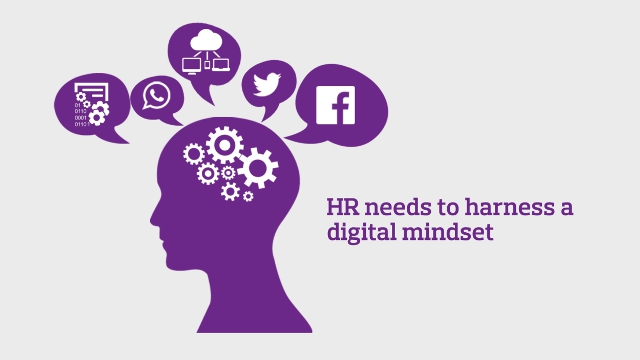Digitisation has emerged as a key disruptor and game-changer, with enterprises leveraging the integration of big data, cloud computing and mobile, and smart technology becoming a key business priority.
Digitisation is creating tectonic shifts in the way individuals work and engage. The way employees interact—with the world at large, amongst themselves and with the organisation—has undergone a fundamental shift. Their perspective of engagement and learning is not what it used to be even five years ago! These behavioural changes are deeply impacting the cultural fabric of the organisation.
The question, of course, will be the extent to which the HR function will innovate, in order to make itself more relevant and create value in this changed reality.
HR technology, in a lot of organisations, is still quite nascent. One of the challenges faced is the integration of systems. Whilst some organisations have adopted state-of-the-art add-on HR applications, their basic data warehouses have not undergone the much-needed overhaul. Thus, they have multiple systems that do not communicate seamlessly with each other.
Nonetheless, the function has adopted mobile applications for more efficient recruiting along with tools, such as virtual interviews and applications to engage with prospective employees, to improve candidate experience. Internal social networking applications are changing the process of employee engagement, improving information access and knowledge sharing between employees, and fuelling innovation. Social technologies also play a big role in leadership access, increasing transparency, and building more neutral avenues for employees to share their opinions. Several bottoms-up organisation changes can be driven effectively through these.
Learning is becoming more shared, application based and bite-sized. The realms of learning are becoming wider and more outside-in with YouTube and MOOC platforms, such as Udemy and Coursera.
Technology-enabled delivery in HR will allow HR professionals to free up their time and utilise their skills more effectively in the areas of strategic advisory to business rather than operations.
Big Data
Big Data is everywhere and will be the foundation of all decisions. HR can be no exception to this. As a function, however, HR has relied heavily on the emotive/qualitative aspects of situations for decision-making. Data consumption has largely been restricted to the basics—reporting lagging indicators rather than predictive data.
The fragmented existence of data, as it is currently available, poses immense processing challenges and is vulnerable to errors, thus hindering integrated analysis and meaningful conclusions. Going forward, HR professionals will embrace technology to build the right metrics to track, analyse and report data-driven decision-making to redefine all aspects of talent and people practices.
Business and people managers are seeing value in HR analytics and starting to increasingly demand direct access to employee data on an ongoing basis. Manager portals on company intranets now empower managers with critical employee data and real-time updates on all employee lifecycle events.

In order to build the necessary inter-linkages that are scientific in their basis, qualified data scientists will be required. Advanced analytics teams can help uncover underlying trends in human capital data and generate transformative, compelling and actionable insights for informed decision support. Also, it will be necessary to present this data in a simple and intuitive manner, since the objective of big data is not to increase complexity, but allow meaningful insights to shine through.
The role of HR will then be to integrate data insights with their expertise in the qualitative and emotive elements of human behaviour, leading to much more holistic decision making.
As digitisation and analytics become more fundamental to business advisory—resulting in innovative and agile people management practices to stay competitive—HR will be truly digital!
Change is the name of the game!
In the VUCA world, the mandate for leaders is to be quick and decisive, taking the most appropriate actions in the least time. The HR function has been faced with the demand for transformation—to drive strategic changes in the way business operates. As one harnesses the power of technology and digitisation, one will free up one’s time to do this better. However, in order to do so, one will need to re-skill oneself and adopt a more flexible mindset. HR cannot just be playing a catch-up game in this fast-paced environment. HR people need to be early embracers and innovators in the true spirit. Agility in the way HR operates will underpin its success in the days to come.
(The author is MD, CHRO, Citi-South Asia).




2 Comments
fragmented existence of data is fundamentally in our minds as well; not just in the Big Data.
In the distant future, the tectonic shifts being created today shall impact the ways individuals not merely work and engage but THINK. And this will be the key challenge of persons then because ALL persons shall be consciously HR then. Man will not have any other option if we have to survive. Hence personal revenue improvement programs (PRIPs) have to be tossed at the winds sooner than later; general revenue improvement programs (GRIPs) have to be practised in right earnest now on…..there is no alternative.
fragmented existence of data is fundamentally in our minds as well; not just in the Big Data.
In the distant future, the tectonic shifts being created today shall impact the ways individuals not merely work and engage but THINK. And this will be the key challenge of persons then because ALL persons shall be consciously HR then. Man will not have any other option if we have to survive. Hence personal revenue improvement programs (PRIPs) have to be tossed at the winds sooner than later; general revenue improvement programs (GRIPs) have to be practised in right earnest now on…..there is no alternative.